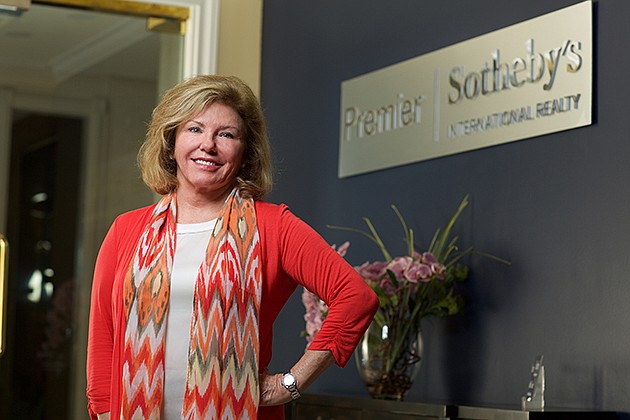On a recent trip to Brazil, Judy Green was reminded why foreign investors find the U.S. so attractive.
A waiter at an upscale restaurant in São Paulo used a special tie to lock Green's purse to her dining chair. After Green gave him a puzzled look, the waiter kindly explained that the measure was to prevent a thief from making off with her purse.
At the hotel where she was staying, Green was warned to stay close to the lobby and not to step onto the sidewalk while waiting for a taxi. That's because motorcycle-riding criminals have been known to roar up to unsuspecting visitors and demand their money and jewelry at gunpoint.
That's one of the reason Brazilians and other foreigners have been scouting investment opportunities in places like Naples. Green, the president and CEO of Naples-based Premier Sotheby's International Realty, says the U.S. remains a safe haven despite a stronger U.S. dollar.
Green says foreign investors looking for privacy are shying away from glitzy Miami, traditionally the main destination for Latin American investors. “Miami is so congested and so much building is going on there,” she says.
Green also says that schools on the Gulf Coast are appealing to young professionals from overseas who want their children to be educated in the U.S.
While she acknowledges that the Gulf Coast doesn't offer the late night dining and entertainment that appeal to many Latin Americans, Green says privacy is a big deal to wealthy individuals who are targets in their home countries. “They're looking for something different,” Green says. “The one thing we offer is more of a private life.”
Plus, the economic and political uncertainty around the globe means wealthy people overseas seek to invest in stable areas such as the U.S. “It's not going to be taken away from them,” Green says.
An analysis of Premier Sotheby's $3.4 billion in real estate transactions from Tampa to Marco Island last year revealed that 10% of them involved foreign investors. In 2014, people from 179 different countries viewed the company's website. “We did more international than we even realized,” says Green, who notes that the international share of the company's real estate transactions could reach 20% within a few years.
To capitalize on this trend, Green has been racking up the frequent-flier miles lately. After meeting investors in Brazil two weeks ago, she's flying to Rome to meet with Italian investors in two weeks. Then, it's off to London in the last week in May, followed by Ireland and Canada.
Although the Canadian dollar has lost some of its buying power in the U.S., Green says Southwest Florida remains an appealing destination. “I still think the main driver is the appeal of warmer weather,” she says.
Asia is also on Green's radar, including China. “That's definitely on the target list,” she says. Chinese investors are seeking out properties in the U.S. for the same reasons Latin Americans are: a safe place to invest and educate their children.
Follow Jean Gruss on Twitter @JeanGruss






